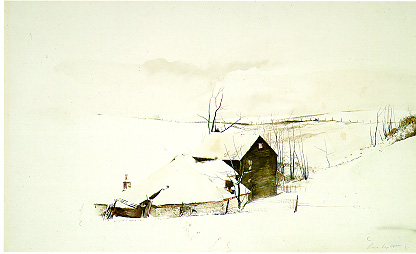 |
Puritan
Beliefs
|
Three Beliefs that
Shaped the Puritan Writing Style
- They wanted to experience "grace",
a cleansing of the soul. No amount of praying or Bible
reading can give you grace. Grace is given to a person
from God -- a rebirth. This encouraged people to examine
their lives and the events of their day to find grace or
signs of acceptance from God. People wanted to read
stories about how others experienced grace or got through
hard times to help themselves.
- They valued "plainness"
They wanted to return Christianity to the simplest forms.
The Word of God was all that was important and this was
reflected in every way they lived their lives. They
dressed in only black and white, covered their hair, had
no pictures on the walls of their homes. Their windows
were higher to provide sunlight to read the bible, but
not to view nature. They had simple homes and churches
and did not want to stand out from the crowd or else they
would be committing the worst sin: vanity! This is
reflected in American tastes today in the simple t-shirt
and blue jeans, the plain language we admire in others,
how most of us want to be like, dress like, and talk like
our peers rather than stand out and be different.
- They believed in the ideas of predestination and "Divine Mission."
They felt that they were put on this earth at this time
in history by God for a purpose. They were to start a New
Jeresalem ("Salem") and preach the word of God
to everyone and spread that word from sea to shining sea.
This idea of predestination is seen in America's foreign
policy and commercial mission. Americans still feel that
their government and lifestyle is the best and will enter
other countries trying to force them to live our way of
life.
Puritans wrote about their lives and their struggles
in diaries and "spiritual autobiographies"
EXAMPLE: Cotton
Mather's Magnalia Christi Americana
in 1702 (The Great Works of Christ in
America) and in William
Bradford's Of Plymouth Plantation
not published until 200 years after his
death.
Puritans also wrote a lot of poetry: Anne Bradstreet (her
poems were first published without her knowledge), Edward Taylor,
and Michael Wigglesworth
(his "The Day of Doom" in 1662 was so popular it was
owned by one third of the population -- roughly 100 million
copies in today's market!)
Puritanism as a way of life lasted only a century in
America. Cities, new people, leaders dying all contributed to the
demise of Puritanism.
In the 1740's there was a brief "Great
Awakening", but it was short-lived. The main man in the
Great Awakening was a preacher by the name of Jonathan Edwards.
Have Questions Or Comments?
Email Jay Edwards
Back to Class Page

